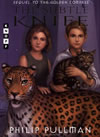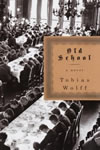The old gang are back again, as W.E.B. Griffin revives his Brotherhood of War series. This was Griffin's first series -- at least under this particular pen name -- and in many ways it's a rehearsal for The Corps. But it's still fine entertainment, and it provides a sympathetic picture of Republican Middle America in the mid '60s when Lyndon is president, Vietnam is ramping up, the movement is beginning to simmer -- and none of these people particularly notices.
Don't be misled by the flap copy that promises lots of action; combat, in Griffin, is almost always offstage and the real enemy is chicken shit.
This volume is marred by Griffin's need to explain everything that's gone before -- he (or his editors) simply can't trust the reader to accept that characters have histories, and if someone earned a medal five volumes back, Griffin has to find a way to explicate the backstory here. Like Clancy, Griffin has his little axes to grind -- he's always defending Norwich and VMI from West Point. The women of The Brotherhood never were worth much (and only Ernie Sage in The Corps is worth the paper she's printed on), and that unbalances a book which is, in the end, about warriors at rest. Still, it's vastly entertaining, a holiday treat.
August 20, 2013 (permalink)










